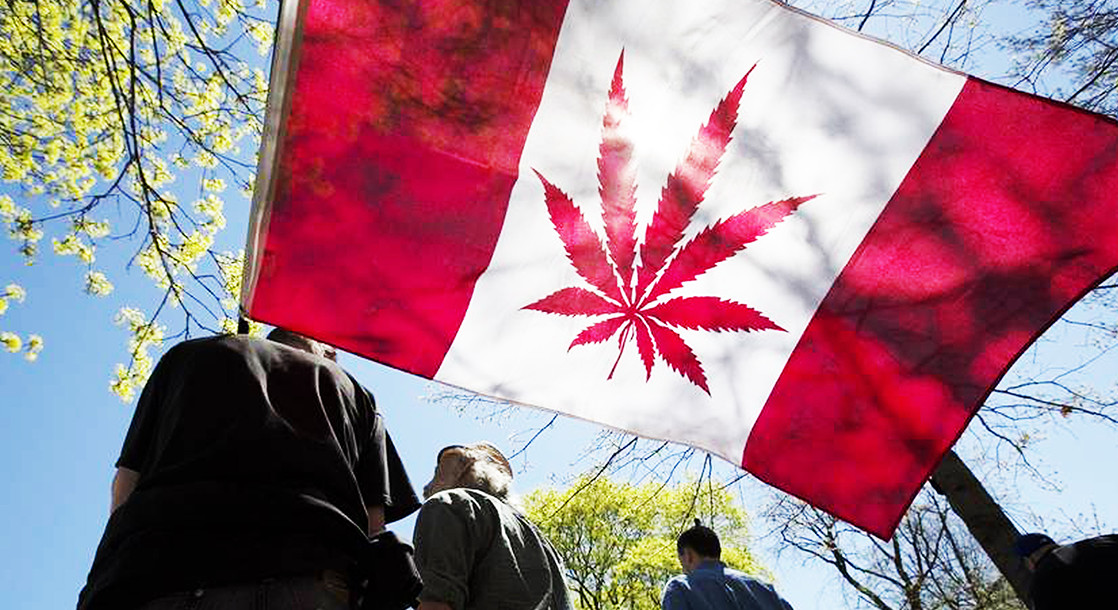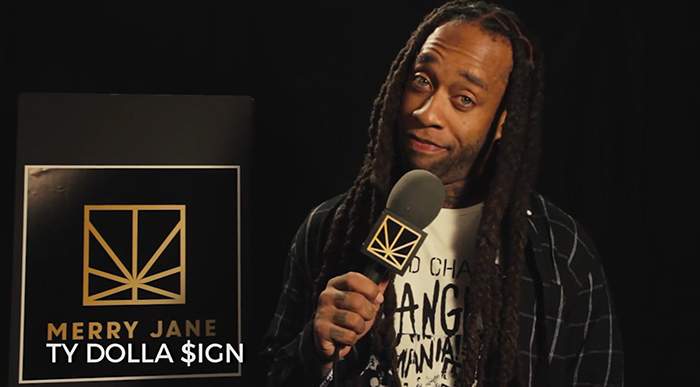If you took all the people in Canada with a cannabis possession charge on their criminal record and put them together in one place, it would be the 10th largest city in Canada. It would also be one of the most non-white cities in the country, and it would have been consistently growing in size right up until the moment cannabis was legalized.
There are around 500,000 people with a criminal record for pot possession in Canada. Before legalization was announced, the country was charging around 60,000 people every year, costing taxpayers over a billion dollars annually; even after legalization was announced, thousands of people were prosecuted, as the old laws were still on the books until October 17th, when Canada finally legalized marijuana.
This reality has been a constant thorn in the side of legalization efforts. Canada’s original bill to regulate legal cannabis use and sales never included any provisions for amnesty or pardons for past marijuana offenses, and many critics of the government’s policy argued that this omission was a central failure of the bill itself; efforts to have amnesty provisions added in the eleventh hour (or to delay passage of the Cannabis Act until amnesty could be included) were unsuccessful.
And then, on the night of October 16th, while much of the country was anxiously waiting for the sun to officially set on prohibition, word broke that the government was planning to announce some sort of pardon or amnesty provisions the next day. It was the news that a lot of people had been waiting, and calling, for.
At a news conference in Ottawa early the next morning, the four cabinet ministers largely responsible for pushing legalization forward — Public Safety Minister Ralph Goodale, Justice Minister Jody Wilson-Raybould, Health Minister Ginette Petitpas Taylor and Organized Crime and Border Minister Bill Blair — announced the details of their pardon initiative: to introduce legislation by the end of the year that would waive the $631 fee and the five-year waiting period for anyone looking to get a record suspension for simple cannabis possession.
In Canada, expungements are reserved for crimes the government has deemed “historically unjust,” and result in the complete and permanent destruction of any record of the crime.
Record suspension (otherwise known as a pardon), according to the government, “allows people who were convicted of a criminal offense, but have completed their sentence and demonstrated that they are law-abiding citizens for a prescribed number of years, to have their criminal record kept separate and apart from other criminal records.” Pardons have a beneficial impact, especially if a possession charge is the only thing on your record. In that case, “you would then be eligible to apply for jobs that require criminal record checks,” says Caryma Sa’d, a criminal lawyer in Toronto. “You could confidently check ‘no, not convicted.’” (Per Canadian labour law, companies are only allowed to ask job applicants if they have ever been convicted of a crime for which no pardon has been granted. It is illegal to ask them to declare convictions that have been pardoned.)
Getting a record suspension would open up employment, volunteer, and housing opportunities for former offenders, as well as some travel opportunities, though Sa’d notes that “it’s not going to be a guarantee that you could travel.” American border officials, for example, would have access to pardoned records, and be able to make their own admissibility determinations accordingly.
Pretty much immediately, critics pointed to what they saw as a central flaw: record suspensions are not expungements. An expungement is like saying you never should have been convicted of a crime in the first place, while a pardon is essentially just an official government apology. In Canada, expungements are reserved for crimes the government has deemed “historically unjust,” and result in the complete and permanent destruction of any record of the crime, whereas a pardon takes that record, separates it from any other criminal files you have, and removes it from certain police database records. “More commonly when we look at pardons, we’re saying the person has changed,” says Sarah Leamon, a lawyer in Vancouver who has vocally supported amnesty campaigns for cannabis charges. Under Canada’s new cannabis law, she adds,“we’re granting these pardons because it’s consistent with what we consider to be social justice at this point.”
Amnesty advocates for previous cannabis ‘crimes’ have been pushing for a policy of record expungements, which are more rare in Canadian law. However amnesty and expungements are not interchangeable terms. “Amnesty” — for activists and lawyers concerned with it — means a lot of things, and it’s not just a request for specific policies regarding criminal records. Amnesty is a larger umbrella under which a variety of measures are being advocated, of which expungements and/or pardons are just one. Many amnesty advocates would also like to see tax revenue re-invested in the communities that have been disproportionately affected by cannabis prohibition, for instance. For those who support it, “amnesty” is an ideal outcome, and expungements or pardons are just some of the steps towards it.
“We’re arguing that there’s been a profound historical injustice in the way these laws have been applied.”
The only offenses currently eligible for complete expungement under the Expungement of Historically Unjust Convictions Act (which only became law in June of this year) are those related to the criminalization of same-sex acts, like anal intercourse and “gross indecency”.
Pardons do not make the crime indetectable to the same degree as expungements. There are still records of court appearances, charges, and interactions with police, and U.S. border agents could still potentially view such documents.
There’s also an existential difference between record suspensions and expungements that helps to explain why the government chose the former over the latter. An expungement is a more far-reaching and profound statement about the law in question — that the law should have never been prosecuted, or, in the case of record expungements for LGBTQ individuals, that the law never should have existed in the first place. A pardon says something different entirely: that a particular person should no longer have to suffer the consequences of having that crime on their record. One is a philosophical statement about the law, while the other is a practical statement about criminals.
“Expungement is intended for cases that would be contrary to the Charter of Rights and Freedoms, as was the case for laws that discriminated against LGBTQ2+ Canadians because of their sexual orientation,” said Minister Goodale in an email to MERRY JANE. “Historical laws prohibiting possession of cannabis were consistent with the Charter of Rights.”
It is worth noting that New Democratic MP Murray Rankin introduced a bill early in October called the Expungement of Certain Cannabis-related Convictions Act that would provide expungements for cannabis possession. It has yet to be voted on; Rankin did not respond to a request for an interview.
Criminologist Akwasi Owusu-Bempah, who is a member of the Campaign for Cannabis Amnesty (a coalition of activists, lawyers, and researchers who have been leading the charge for expungement of cannabis offenses since May), argues the opposite of Goodale — that the past prosecution of cannabis prohibition laws do rise to the level of injustice. “We’re arguing that there’s been a profound historical injustice in the way these laws have been applied,” he said. In his mind, the injustice of the outcomes is built into the inequity of the laws themselves.
The Campaign for Cannabis Amnesty hits the streets in Vancouver, British Columbia.
“There is no question that certain communities have been disproportionately affected by the way cannabis laws have been applied, and we are addressing that by providing free, immediate access to pardons. Almost every law is bound to impact certain groups of people in disproportionate ways,” says Minister Goodale. “So you have to look at the nature of the offense.”
It arguably would have been hard for the government to make as strong a statement as a wholesale process for expungement would have. Had they offered complete record expungements for previous cannabis violations, it might have contradicted their messaging around legalization — that it was about better regulation, better enforcement, and keeping weed out of the hands of children. Their position has never really been that the prohibition of cannabis should have never happened in the first place, or that it was fundamentally unjust, but rather that the system of prohibition was, largely, a failure that had unjust outcomes. One of the interesting things about the Cannabis Act is that it’s strikingly amoral: it may say that possessing cannabis is legal now, but it doesn’t say it was wrong for weed to be illegal in the first place. There’s a difference there, and it matters.
“Expungement makes a necessary statement that we acknowledge having a criminal record impacts lives,” says Sa’d. A pardon, on the other hand, “acknowledges that, to put it in these terms, their debt to society has been paid.”
Owusu-Bempah said that the vagueness and subjectivity of such language raises a bunch of red flags, and could tie the status of any pardons granted to the political question of whether cannabis is legal or not. “We no longer have a formal pardon system. [Former prime minister Stephen] Harper’s government changed it to a record suspension,” he explains, referring to a 2012 bill that came as part of Harper’s ‘tough on crime’ agenda.“If a subsequent government were to come in and change the [Cannabis Act], those criminal records could be reinstated,” he says. (That’s not impossible, either: the Conservative Party of Canada has been somewhat noncommittal as to whether or not they would uphold the Cannabis Act and legalization at large if they win office next October.)
One issue that is being flagged now by activists and researchers is that record suspensions are not even permanent regardless of whether the new cannabis law changes. According to the Parole Board of Canada, “A record suspension (or pardon) can be revoked or cease to have effect if you are: Convicted of a new indictable offense, or in some cases, a summary offense;” or “Found to no longer be of good conduct.” The law, as written, offers no indications as to what “good conduct” means.
Record suspensions, says Owusu-Bempah, are a good first step, but not enough to justly serve those criminally prosecuted under cannabis prohibition. “I think it’s well intended. But really, in a larger picture, I don’t think the current government has done enough to reform criminal justice,” he says. “Not enough attention has been paid to this issue as should be.”
“If other people can don suits and ties, and start looking like legitimate business persons in merchandising marijuana, so should some folks who had criminal records be permitted to don their suits and ties too, and be involved in the industry.”
The pardons are being talked about as an equalizing measure to the racial dimension of cannabis policing (i.e. that people of color are prosecuted more frequently than white people despite equal rates of use), and while they are that, “we don’t know” what the racial breakdown of record suspensions will be, says Owusu-Bempah. Collection of racial data is not standardized across the nation’s policing, and there aren’t clear statistics of which racial demographics are most affected by possession charges on their record. “We also need racially disaggregated data from our justice system, which we don’t have,” says Owusu-Bempah.
This isn’t to say that there aren’t pieces of information available outlining the racial disparities in cannabis policing. Vice News’ Rachel Browne, using Canada’s access to information laws, reported that major cities across Canada had quantifiably disparate enforcement rates. In Ottawa, for instance, black and Indigenous people were respectively five and four times more likely to be charged with cannabis possession than white people; in Halifax, black people were four times more likely to be arrested; and in Vancouver, Indigenous people were seven times more likely to be arrested. An earlier Toronto Star investigation similarly found that black Torontonians were three times more likely to be arrested for pot charges.
Not much of that information is made readily available to the general public, and is usually kept behind access to information requests, so determining which group will most benefit from cannabis pardons is hard to do.
“We know that there’s huge variation across the country in how likely the police are to charge someone for cannabis possession,” says Owusu-Bempah. “We get that evidence from the little bit of data that we’ve been able to get through [freedom of information requests]” — a slow and cumbersome process in Canada.
“The data does exist, it’s just not made public,” says Owusu-Bempah. “This is where things get ironic. In the time that I’ve been engaged publicly [with criminal justice research], I’ve had a couple levels of government reach out and ask if they can use my data.”
If you leave data aside, for a moment, there is a more qualitative argument at play: that campaigns for amnesty are a step towards making cannabis in Canada more equitable on a cultural level. There are those who think we have a long way to go on that front, even as cannabis is ostensibly legalized.
Earlier in the year, before legalization went into effect, I spoke with George Elliott Clarke, who was Canada’s parliamentary poet laureate in 2017. His work and research has focused principally on the experience of black Canadians, and he even wrote a poem about cannabis legalization. To him, the prohibition of cannabis, unequal as it is, is part of a larger criminalization of black people. With a tenuous and fragile pardon system, that problem still exists.

George Elliot Clarke, former Canadian Parliamentary Poet Laureate; photo via Harvey K
“At any moment, almost any white person can take away that relative freedom and equality that that black person or that brown person thinks he or she is enjoying, or has access too, based on the previous centuries of oppression that are gone, but not forgotten by anyone really,” he said.
“I would like to see people of color, who have been so persecuted and prosecuted for being small-time dealers and very small-time users of marijuana, finally have an opportunity themselves to prosper and profit from the marketing of the substance. If other people can don suits and ties, and start looking like legitimate business persons in merchandising marijuana, so should some folks who had criminal records be permitted to don their suits and ties too, and be involved in the industry.”
“Even post-legalization, at the end of prohibition, there’s still some disproportionate policing that’s happening around cannabis,” says Tyler James, stakeholder engagement manager at Aurora Cannabis. He says that many of the “systemic prejudices” are still present, and that the mechanical ways police behave differently towards racialized individuals may change, but are unlikely to be eliminated entirely. “I’m not saying they’re going to exercise them,” he says, but “they can pull them over, they can request a swab, and they can search that car.”
James says that the debate over expungements and pardons is only one dimension that activists and industry advocates are pushing for. James is working with lawmakers, he says, to try to encourage municipalities to commit to setting aside some of the pot tax revenues to invest in and create opportunities for racial communities disproportionately impacted by Canada’s drug laws.
“Even post-legalization… there’s still some disproportionate policing that’s happening around cannabis."
How record suspensions play out in practice still remains to be seen. Applying for a records suspension is still, it should be said, an onerous process in Canada that requires plenty of paperwork: there are at least eight forms that most people would need to fill out and submit, not to mention the cost of legal counsel. In a statement to MERRY JANE, Minister Goodale did not address the question of whether or not the government would be increasing its funding of legal aid in response to an elevated demand for record suspension services.
Sa’d says that there has been early talk of a push among criminal lawyers to try to organize legal clinics to help people navigate the pardons application process. But she’s hoping that the government shoulders some of that load.
“There’s already mobilization happening on the ground,” she says. “Hopefully it doesn’t all have to be a grassroots effort.”











